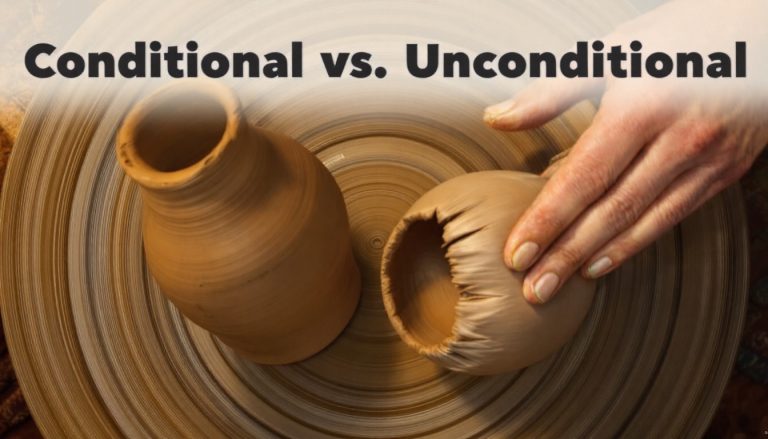Foreknown ≠ Preapproved: Why Romans 8:29’s ‘Foreknowledge’ Isn’t a Calvinist Rubber Stamp
The Calvinist Position: Unconditional Election
In Chosen by God, R.C. Sproul tackles the idea of predestination head-on, especially in his discussion of Romans 8:29. He firmly rejects the notion that God’s election—choosing who gets saved—is based on foreseen faith. On pages 127–130, Sproul argues that God’s choice is “unconditional,” rooted solely in His sovereign will, not in anything He sees in us, like future belief. For Sproul, if God picked people based on their belief, salvation would depend on human action, not divine grace. He sees Romans 8:29—“For those whom he foreknew he also predestined”—as proof of God’s unilateral decision. In his view, “foreknew” doesn’t mean God looked ahead to spot who’d trust Him; it means He pre-decided who’d be His, no strings attached. This is classic Calvinism: God’s will alone stamps the ticket to heaven, and human faith is just the result, not the reason.
It’s a bold stance, and it anchors the “U” in TULIP: Unconditional Election. But does “foreknowledge” really work as a rubber stamp for God’s arbitrary choice? Let’s dig into Scripture and see why this Calvinist take might miss the mark.
Romans 8:29: Foreknowledge as Relational, Not Arbitrary
Romans 8:29 says, “For those whom he foreknew he also predestined to be conformed to the image of his Son, that he might be the firstborn among many brothers.” At first glance, it’s easy to see why Calvinists like Sproul latch onto this. “Foreknew” sounds like God’s got a plan locked in from eternity. But what does “foreknew” actually mean? The Greek word here is proginosko, and it’s not just about knowing facts ahead of time—like a cosmic weather forecast. In the Bible, “knowing” often carries a deeper, relational weight.
Take Jeremiah 1:5: “Before I formed you in the womb I knew you, and before you were born I consecrated you.” God’s “knowing” of Jeremiah isn’t just about predicting his life—it’s about a personal, loving connection before he even existed. Same vibe in Amos 3:2, where God says to Israel, “You only have I known of all the families of the earth.” Did God not know about other nations? Of course He did. This “knowing” is about choosing a relationship, not just raw data. So, when Romans 8:29 says God “foreknew” people, it’s not a cold, detached preview of their faith or a random pick from a lineup. It’s God setting His love on them, planning a bond that unfolds in Christ.
If “foreknew” means God’s loving foreordination of a relationship, Sproul’s unconditional election starts to wobble. It’s not about God ignoring the future—it’s about Him embracing it with purpose.
1 Peter 1:2: Election Tied to God’s Plan, Not a Blind Decree
Let’s broaden the lens with 1 Peter 1:2, which says believers are “elect according to the foreknowledge of God the Father, in the sanctification of the Spirit, for obedience to Jesus Christ and for sprinkling with his blood.” Here’s another spot where “foreknowledge” (prognosis in Greek) shows up. Peter links election straight to God’s foreknowledge, but notice what follows: it’s “for obedience to Jesus Christ.” This isn’t a blank check election—it’s tied to a plan, one that involves faith in Christ and His sacrifice.
If Sproul’s right, and foreknowledge is just God’s sovereign preapproval unrelated to anything in us, why does Peter connect it to obedience and Christ’s blood? God’s election flows from His foreknown purpose to save those who’ll be in Christ. Ephesians 1:4 backs this up: “He chose us in him before the foundation of the world.” The focus isn’t on individuals plucked out of thin air—it’s on a group defined by their union with Jesus. God’s foreknowledge isn’t a rubber stamp; it’s a blueprint for redemption that includes faith, not one that bypasses it.
Does Scripture Ever Paint Election as Purely Unconditional?
Here’s a question for Calvinists: where does the Bible clearly say election is totally detached from faith? Sproul leans hard on Romans 9 (p. 12), especially the bit about God choosing Jacob over Esau “before they had done anything good or bad” (Romans 9:11). He says this proves God’s choice is unconditional. But context matters. Paul’s point in Romans 9 isn’t about individual salvation—it’s about God picking Israel’s lineage to carry His promise. Jacob wasn’t “saved” and Esau “damned” in an eternal sense here; it’s about their roles in history.
Contrast that with how faith pops up everywhere else:
- Romans 10:9: “If you confess with your mouth that Jesus is Lord and believe in your heart that God raised him from the dead, you will be saved.”
- John 3:16: “For God so loved the world, that he gave his only Son, that whoever believes in him should not perish but have eternal life.”
- Acts 16:31: “Believe in the Lord Jesus, and you will be saved.”
Faith isn’t an afterthought—it’s the hinge. If God’s foreknowledge includes His plan for people to trust Christ, election isn’t arbitrary. It’s relational and purposeful, not a cosmic coin toss.
Dismantling the Calvinist Counterarguments
Calvinists like Sproul have some go-to defenses. Let’s tackle them:
- “Foreknowledge is just foreordination, not foreseen faith”
Sproul insists “foreknew” in Romans 8:29 means God’s decision, not a peek at future belief (p. 127). But if proginosko is only about pre-deciding, why does the Bible use “know” for relationships so often? In Matthew 7:23, Jesus says to the lost, “I never knew you”—not “I didn’t predict you,” but “I had no bond with you.” Foreknowledge as relational foreordination fits Scripture better than a sterile decree. - “Election based on faith makes it a work”
Calvinists argue that if God chooses based on foreseen faith, salvation becomes human-driven, not grace-driven. But faith isn’t a “work”—it’s a response. Ephesians 2:8 says, “By grace you have been saved through faith.” Faith is the channel, not the source. God’s foreknowledge of who’ll believe doesn’t earn them election—it’s just how His grace lands. - “God’s sovereignty demands unconditional choice”
Sproul ties election to sovereignty (p. 26: “If God is not sovereign, then God is not God”). No one’s denying sovereignty—God’s in charge. But He can sovereignly choose to elect based on His foreknown plan, including faith, without losing an ounce of control. 1 Peter 1:2 shows He does just that.
The Flaw and Its Fallout
Sproul’s view turns “foreknowledge” into a blank check for God’s will, stripping it of its relational depth. If election’s unconditional and faith’s just a byproduct, why does Scripture keep tying belief to salvation? The Calvinist take risks painting God as aloof, picking winners and losers with no rhyme or reason. But Romans 8:29 and 1 Peter 1:2 show a God who foreknows with love, electing those He plans to redeem in Christ. The flaw? It misses the heart of foreknowledge—God’s personal, purposeful vision for His people.
This matters big time. If election hinges on God’s arbitrary will alone, it can breed despair—am I elect, or not? But if it’s tied to His foreknown plan for faith in Christ, it invites hope. You’re not a pawn in a divine lottery; you’re called to trust a Savior who died for you. That shifts theology from fatalism to relationship.
Conclusion: A God Who Knows and Calls
Calvinists say God ignores the future—but “foreknowledge” means He embraces it. Romans 8:29 isn’t a rubber stamp for unconditional election; it’s a window into God’s loving plan. He foreknows us—not as robots preapproved for glory, but as people He’s chosen to draw into Christ through faith. Sproul’s view might feel secure, but it sidesteps the Bible’s relational pulse. God’s sovereignty doesn’t need to bulldoze faith—it works through it. So, hear the gospel, believe, and rest in a God who’s known you all along.






